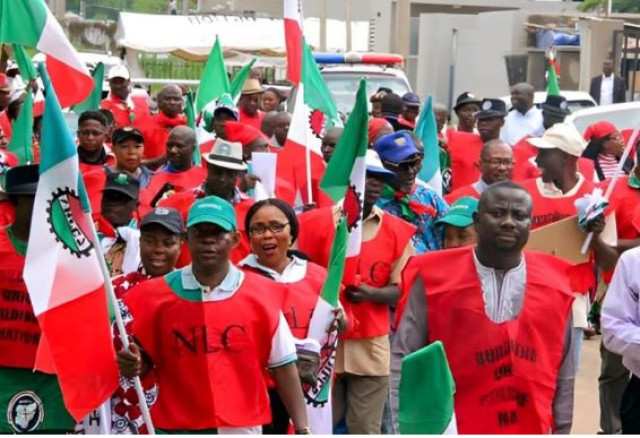The organized labor will commence an indefinite strike, leading to the closure of fuel distribution, health services, banking, and other essential services nationwide.
This action is in response to the recent increase in electricity tariffs and the demand for a higher minimum wage.
The Federal Government issued a quick response yesterday, cautioning the Nigeria Labour Congress, NLC, and the Trade Union Congress, TUC, to abandon the planned indefinite strike, stating that it was premature and against the law.
The Senate president, Godswill Akpabio, speaker of the House of Representatives, Tajudeen Abbas, Secretary to Government of the Federation, SGF, George Akume, Chief of Staff to the President, Femi Gbajabiamila, Minister of Finance and Coordinating Minister of the Economy, Wale Edun, and others were unable to prevent the planned strike after a lengthy meeting with NLC president, Joe Ajaero, and his TUC counterpart, Festus Osifo.
In preparation for the strike, the Trade Union Congress of Nigeria, TUC, has instructed the Petroleum and Natural Gas Senior Staff Association of Nigeria, PENGASSAN, Association of Senior Staff of Banks, Insurance and Financial Institutions, ASSBIFI, Association of Senior Civil Servants of Nigeria, ASCSN, and other senior staff associations to ensure full compliance.
Earlier, Nigeria Labour Congress’ affiliates, including the Nigeria Union of Petroleum and Natural Gas Workers, NUPENG, National Union of Electricity Employees, NUEE, Maritime Workers Union of Nigeria, MWUN, National Union of Banks, Insurance and Financial Institutions Employees, NUBIFIE, and other critical sector unions had informed their members to ensure complete compliance.
It is worth noting that the two labor centers had announced an indefinite nationwide strike from today due to the government’s failure to finalize a new national minimum wage and reverse the recent increase in electricity tariff.
NLC and TUC leaders had given the Federal Government until May 31 to conclude negotiations on a new national minimum wage or face nationwide industrial unrest during Workers Day celebrations.
The government's tripartite committee on a new national minimum wage failed to reach an agreement after about four meetings. Labour leaders had walked out of the meetings three times after rejecting offers from the government and the organized private sector (OPS). The most recent walkout occurred on Friday.




















